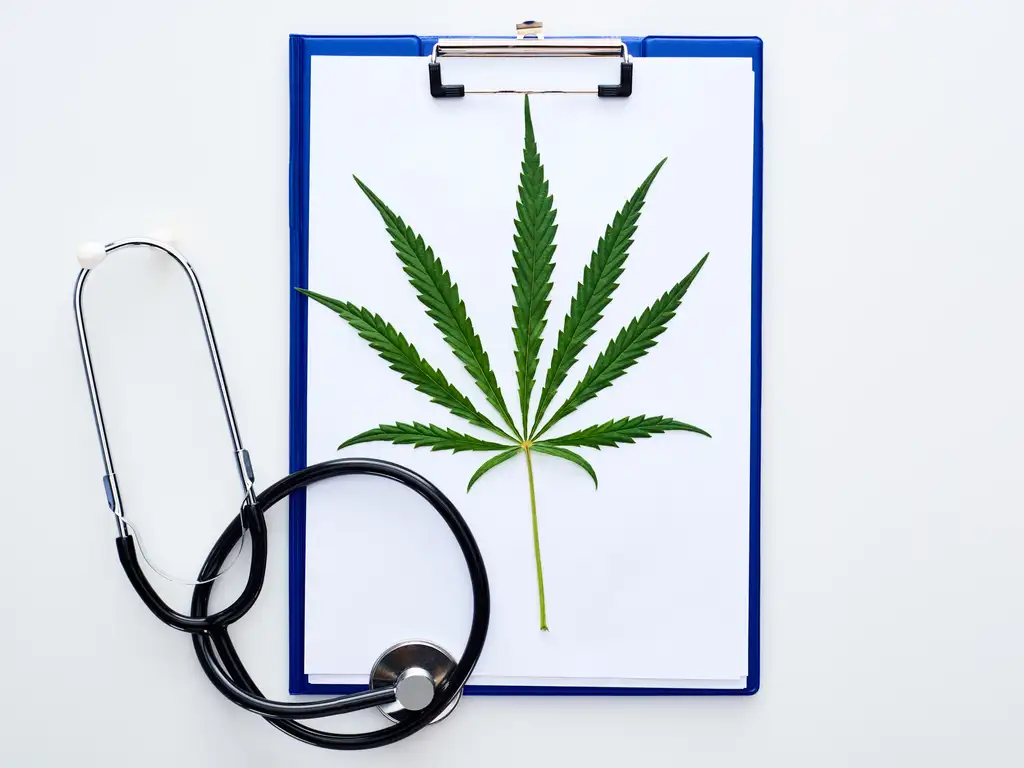Abusing controlled substances like marijuana and alcohol are already concerning habits that can greatly affect someone’s life. However, some individuals are taking it to the next level by drinking alcohol and consuming marijuana and other drugs at the same time seeking the ultimate euphoria. This practice is called getting cross-faded.
The term “cross-faded” has gained popularity in recent years, especially among young adults. This is the state of being under the influence of multiple drugs simultaneously, and cross-fading carries both unique effects and potential risks. What are these effects? What does too much alcohol and too much THC combined do to the body?
Turning Point of Tampa has shared a blog post that delves deeper into the meaning of cross-faded, its effects on physiological and mental health, and ways to get help. Keep reading to learn more.

What Is “Cross-Faded?”
Cross-faded, in its simplest sense, describes the experience of combining alcohol and marijuana or other substances to intensify the effects of both. The interaction between these substances can create a unique and often unpredictable high that differs from using each drug separately. A cross faded high has now expanded to include the combination of various substances, such as alcohol with prescription medications or illicit drugs.
Those who practice getting cross-faded, intentionally drink alcohol while smoking marijuana at the same time. Of course, there are other ways to consume marijuana, such as edibles and infused drinks. So any time both substances are used, regardless of the method of delivery, can be called getting cross-faded. For other types of substances, they can either be inhaled, injected, or eaten, depending on the type of drug.

Addictive Behaviors: What Happens When a Person Gets Cross-Faded?
Alcohol is a known central nervous system depressant based on how it affects your brain functioning and neural activity. Marijuana has depressant, stimulant, and hallucinogenic effects thanks to the active ingredient Delta-9-tetrahydrocannabinol (THC), the primary cannabinoid found in the plant. The THC in marijuana affects the cannabinoid receptors in the brain. Smoking marijuana simultaneously with alcohol heightens the effects of both drugs, resulting in dangerous scenarios.
When any amount of alcohol is combined with marijuana use, the THC levels are significantly elevated. Adverse effects from an alcoholic beverage and smoking cannabis will effect a person’s ability to perform tasks.
Seeking a cross faded high can cause negative consequences. More frequent users of any two substances used in an excessive amount is subject to a cross addiction. Both alcohol and cannabis use can create a substance use disorder.
Amplified Intoxication
Combining drugs can magnify their individual effects, leading to intensified euphoria, relaxation, or sedation. However, the experience may vary greatly from person to person, depending on individual tolerance levels, the specific drugs used, and the amounts consumed.
The brain’s cannabinoid receptors in frequent users may need higher concentrations of THC in order to take effect. Similar problems happen to those who abuse alcohol, leading to binge drinking. To add to this, alcohol heightens how our blood vessels absorb THC. This puts individuals at risk of extreme intoxication or alcohol overdose.
Impaired Cognitive and Motor Functions
Being cross-faded can impair cognitive abilities, including memory, attention, and decision-making skills. Motor skills may also be affected, leading to increased clumsiness and decreased reaction times. This can pose a significant risk when operating vehicles or engaging in activities that require focus and precision.
Increased Risks and Vulnerabilities
The combination of substances may amplify the potential risks associated with each drug. For instance, mixing alcohol and marijuana can lead to heightened feelings of dizziness, nausea, and increased heart rate. A person may feel as though they’re having panic attacks.
Marijuana and alcohol intoxication can cause lowered blood pressure as the substances relax blood vessels. With low blood pressure comes fatigue, fainting, and impaired vision.
Finally, cross-fading may increase the likelihood of engaging in risky behaviors or making poor judgments, such as driving under the influence or engaging in unprotected sex.

Why People Combine Drugs
There are a few reasons why cross-fading has become a popular trend among alcohol and marijuana users. People try it because of the following and more.
Enhanced High
People seek the intense and altered states of consciousness that being cross-faded can provide. They may enjoy the unique euphoria and relaxation that comes from combining drugs as it offers a different experience than using substances individually.
Social Pressure
Peer influence and societal norms can play a role in the decision to cross-fade. In social settings where substance use is prevalent, individuals may feel pressured to join in, leading to experimentation with combining drugs. This need to “fit in” is prevalent among adolescents and young adults, making them more susceptible to temptation. However, their lack of awareness makes these demographics even more vulnerable to the risks of cross-fading.
Ignorance of Risks
Lack of awareness about the potential dangers of cross-fading, especially among younger populations, can contribute to its appeal. Many individuals may not fully understand the consequences of combining substances and the impact they can have on their well-being.

Other Commonly Used Drugs To Get Cross-Faded
While alcohol and marijuana are the most prevalent combination for achieving a cross-faded state, other substances can also be used along with alcoholic drinks. These include:
- Prescription Medications: Combining alcohol with prescription drugs such as benzodiazepines or opioids can have dangerous consequences. These substances depress the central nervous system and can lead to respiratory depression, increased sedation, and an elevated risk of overdose.
- Stimulants: Some individuals combine stimulant drugs like cocaine or amphetamines with alcohol or marijuana in an attempt to offset the sedative effects of the latter two. However, this combination can put immense strain on the cardiovascular system and increase the risk of heart problems and overdoses.

Dangers of Cross-Fading: Why People Shouldn’t Mix Alcohol and Marijuana
Physical Health Risks
Cross-fading places excessive strain on the body’s systems. You can experience an increased heart rate, elevated blood pressure, and dehydration. In severe cases, individuals may experience alcohol poisoning, respiratory depression, or overdose due to the cumulative effects of the combined drugs.
Mental Health Implications
Cross-fading can have detrimental effects on mental health, exacerbating symptoms of anxiety, depression, or other mood disorders. The combined use of substances may disrupt brain chemistry and lead to a higher risk of developing substance use disorders.
Overlapping Drug Effects
Combining substances creates a complex web of overlapping drug effects that can be challenging to predict. The interaction between drugs can result in heightened cognitive effects or unexpected reactions as well as increased toxicity levels. For example, mixing alcohol and marijuana can intensify dizziness, impair coordination, and enhance feelings of sedation.
Drug Addiction
The long-term effects of cross-fading are marijuana addiction and alcoholism. A person may continuously crave the unique high from the two very different drugs, so they continue consuming both to achieve the sensation.
Drug addiction is a disorder. Someone suffering from alcohol abuse and drug abuse can no longer function normally. This is a health crisis, and those who have substance abuse disorder will need an addiction specialist to help them recover.
Seeking Help for Substance Abuse and Drug Addiction
If you or someone you know is facing physical or mental health issues related to cross-fading, it is crucial to seek professional help. Here are some of the resources available.
- Hotlines: You can contact helplines such as the Substance Abuse and Mental Health Services Administration (SAMHSA) National Helpline at 1-800-662-HELP (4357). Through them, you can get confidential assistance and referrals to treatment services.
- Support Groups: Attending local support groups or online communities can immensely help those who are looking for a safe and cool place to connect with others. In these sessions, individuals share their experiences, seek advice, and find encouragement on the journey to recovery. You’ll learn new perspectives and connect with people who’ve already reached far along the journey to recovery.
- Professional Treatment: Consult with healthcare professionals, such as addiction specialists or therapists, for personalized treatment plans. They can recommend therapies, medication, and practices that can address the physical and mental health consequences of cross-fading.
Final Thoughts on Cross-Faded
Cross-fading can pose significant risks to both a person’s physical and mental health. Understanding the potential dangers and seeking help when needed is vital for individuals facing the consequences of cross-fading.
Remember, it is always better to prioritize our well-being over momentary euphoria.
Contact Turning Point of Tampa Today
Turning Point of Tampa is a trusted drug and alcohol rehab facility based in Tampa, Florida. We have a team of highly credentialed substance abuse specialists ready to help those who’ve developed addiction disorders from cross-fading. Through our programs, clients can begin their journey to recovery in a safe and secure environment. Reach out to us today to learn more!
Frequently Asked Questions
How do I know if I have drank too much alcohol?
The best sign that one has met the limit when drinking alcohol is they throw up. It is a way that your body will naturally alleviate itself and self regulate. A person that throws up will feel better quickly if they have rid them self of the alcohol.
How do I know if I have smoked too much weed?
When one smokes too much weed – this is called greening out. Greening out is temporary and is caused by too much THC.
In extreme situations – greening out can result in feelings of extreme panic and a person can start vomiting, have a headache and feel disorientated.
How do I know I am cross faded?
It is hard to monitor oneself when under the influence. Cannabis use and simultaneous alcohol use carries significant risks, the major risk being the loss of inhibition when drunk and high. This loss of inhibition causes the user impaired ability to accurately monitor their intake of the two substances. The likelihood of excessive alcohol or cannabis consumption, poses the risk of experiencing a greenout or alcohol overdose.
Sources:
https://www.ncbi.nlm.nih.gov/pmc/articles/PMC6329594/
https://www.ncbi.nlm.nih.gov/pmc/articles/PMC7371509/
https://www.medicalnewstoday.com/articles/is-alcohol-a-stimulant-or-depressant
https://www.medicalnewstoday.com/articles/325894


